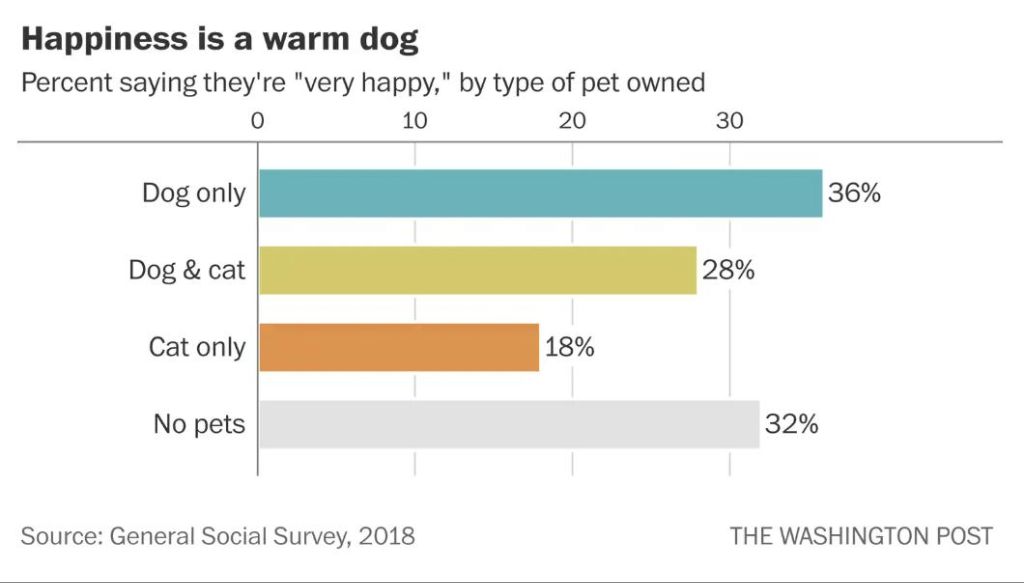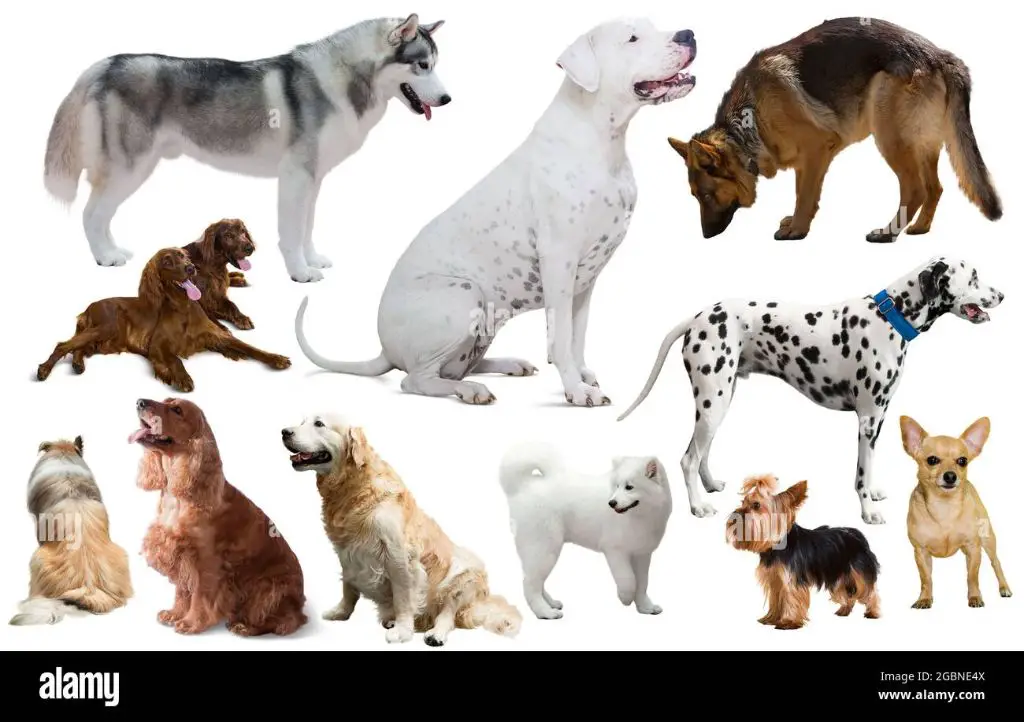Introduction
The debate around whether dog owners or cat owners are happier has raged on for years. Both sides argue passionately about why their preferred pet leads to greater happiness and satisfaction in life. This topic often sparks lively discussion among those in the dog owner and cat owner communities.
At the core of the issue is the fundamental question: what type of pet best provides the companionship, joy, and other intangible benefits that contribute to overall life happiness? Dogs and cats each have their own unique traits and qualities that appeal to different types of owners.
This article will examine the key arguments on both sides of the dog vs. cat owner happiness debate. We’ll look at factors that may contribute to happiness levels of dog and cat owners, from bonding and social aspects to caretaking requirements and health impacts. By exploring this topic in-depth, we aim to shed more light on the differences between these two types of pet owners when it comes to life satisfaction and well-being.
Pet Ownership and Happiness
Numerous studies have shown that pet owners report higher levels of happiness and life satisfaction compared to non-pet owners. For example, a 2019 survey of over 2,000 American adults found that pet owners were significantly more likely to report being “very happy” than non-pet owners (60% vs. 48%).
Research has identified several reasons why pets make people happier, including reducing stress and anxiety, providing companionship, encouraging exercise and outdoor activities, and giving pet owners a sense of purpose. Pets can also facilitate social interactions in neighborhoods and communities. The human-animal bond has evolutionary roots and triggers the release of “feel good” hormones like oxytocin and serotonin.

Overall, pet owners tend to have more positive psychological health, with lower rates of depression, loneliness and isolation. While the causality is difficult to establish, there is a clear correlation between pet ownership and increased human happiness and life satisfaction.
Reasons Dogs Make Owners Happy
Dogs can provide enormous happiness and fulfillment to their owners’ lives in many ways. One major reason is companionship – dogs are often called “man’s best friend” for good reason. They shower their owners with unconditional love and affection. Their loyalty and desire to spend time with their owners makes many people feel less lonely.
Dogs also promote regular exercise, as they require walking, running, playing, and other physical activity. Dog owners tend to be more active and spend more time outdoors than non-dog owners. This exercise provides both physical and mental health benefits. Along with exercise, dogs encourage social interaction as people often stop to chat when walking their dogs or take them to dog parks to play with other pets. This socialization side effect also serves as a mood booster.

In summary, key ways dogs boost their owners’ happiness include providing companionship, love, motivation for daily exercise, and facilitating increased social interaction. Their caring presence and unconditional devotion makes dog owners feel loved, supported, and more fulfilled.
Reasons Cats Make Owners Happy
For many cat owners, cats provide a key source of happiness and joy in their lives. There are several key reasons cats make their owners happy:
Companionship – Like dogs, cats can provide their owners with companionship and emotional support. Having a feline friend to come home to and cuddle with can relieve stress and loneliness for many owners.
Affection – Contrary to the stereotype of cats being aloof, many cats form deep bonds with their owners and enjoy snuggling, sitting on laps, and other displays of affection. The special bond between a cat and its owner can be profoundly fulfilling.
Entertainment – Watching cats play, chase toys or interact with objects in funny ways brings many owners great amusement. A cat’s antics and behaviors can brighten its owner’s day and provide lighthearted fun.
Low Maintenance – Relative to dogs, cats require less time, effort and money to care for. Many owners appreciate that cats can be left alone for periods of time and that caring for them is relatively simple compared to other pets. Their self-sufficiency is seen as a plus.
Differences Between Dog and Cat Owners
There are some key differences in personality traits, lifestyle, socialness, and responsibility between dog and cat owners:
Dog owners tend to be more extroverted, outgoing, and desire more social interaction and physical activity. They enjoy being outdoors and are willing to commit to the responsibility of daily walks, training, socialization, and playtime with their pet. Dog owners are also more likely to live an active lifestyle and enjoy being out and about in their community.
In contrast, cat owners tend to be more introverted, calm, and independent. They are content with lower maintenance pets and more solitary hobbies and activities. Cat owners are not as concerned with rigorous training regimens and socializing their pet, preferring the cat’s tendency towards self-sufficiency. They are happy to provide a safe home base where the cat can come and go freely.
Dog owners must commit to regular daily exercise, training sessions, and hands-on playtime. Cats are lower maintenance and do not require being walked or intensive training. Dogs thrive on human interaction while cats are more independent creatures. Dog owners consequently tend to have larger social circles from walks and dog parks.
In summary, dog owners are generally more extraverted, social, and willing to take on greater pet responsibility. Cat owners are more introverted, independent, and content with lower maintenance companionship.
Happiness Levels of Dog Owners
There have been several major studies and surveys conducted in recent years that looked at happiness levels among dog owners compared to non-dog owners. The results consistently show that dog owners report higher overall levels of happiness and life satisfaction.
One highly-cited study published in 2019 in the Journal of Applied Animal Welfare Science surveyed over 1,000 dog and cat owners in the United States. They found that dog owners scored significantly higher on measures of overall happiness, sense of meaning in life, and community connectedness than non-dog owners.

In another major survey conducted by the American Kennel Club in 2017 with over 30,000 participants, 82% of dog owners described themselves as “very happy” compared to only 67% of non-dog owners. An overwhelming majority of dog owners attributed their higher happiness levels directly to owning a dog.
Interestingly, a 2022 study published in the journal Animals looked specifically at dog owners versus cat owners. The dog owners again reported higher levels of overall happiness and life satisfaction. The difference was smaller but still statistically significant.
Overall, the consistent findings across major studies and surveys clearly show that dog owners on average tend to be happier than those without dogs as pets. The many joys and benefits dogs bring into their owners’ lives are connected with higher well-being and quality of life.
Happiness Levels of Cat Owners
Several studies and surveys have looked at the happiness levels of cat owners compared to non-pet owners. A 2010 study published in the Journal of Personality and Social Psychology found that cat owners tended to be just as happy as people without pets. However, other surveys have shown that cat owners report slightly higher happiness levels.
In a 2019 poll by Gallup, cat owners were found to have overall positive emotions at a rate of 85%, compared to 81% for non-pet owners. Additionally, a 2015 survey commissioned by cat food brand Just Right found that 87% of cat owners reported that their cat made them happy. 60% of cat owners said their cat was as important to them as family members.
While the data on cat owner happiness is mixed compared to non-owners, it does seem that for those who own cats, their pets provide comfort, affection and joy that enhances their quality of life. The independence of cats may make them less stressful to own than dogs, while still providing companionship. More research is needed to determine if cats have an enduring impact on overall owner happiness.
Direct Dog vs Cat Owner Happiness Comparison
Several studies have directly compared the happiness levels of dog and cat owners to determine if one group tends to be happier than the other. Here’s a summary of the major findings:
A large-scale study published in the journal PLOS One in 2019 analyzed survey data from nearly 4,000 adult pet owners. It found that on average, dog owners scored higher on happiness and life satisfaction scales than cat owners. Dog owners were about 1.5 times more likely to be very happy compared to cat owners.
Another study published in the journal Anthrozoös in 2016 compared several measures of psychological wellbeing between dog and cat owners. Dog owners reported lower levels of loneliness and higher levels of belongingness than cat owners. However, there were no significant differences in levels of depression.
Interestingly, a study in the journal Animals in 2020 found different results when surveying elderly adults aged 60+. In this demographic, cat owners reported slightly higher happiness levels than dog owners, potentially due to the lower maintenance requirements of cats suiting older adults’ lifestyles better.
Overall, the bulk of direct research seems to indicate dog owners experience greater boosts to psychological wellbeing including happiness, belongingness and lower loneliness. However, other factors like age may influence whether dogs or cats correlate more strongly with owner happiness.
Other Factors Impacting Owner Happiness
While there are general differences between dog and cat owners’ happiness levels, individual circumstances also play a major role. Factors like a pet’s specific breed, their age, health and temperament, how well they’re trained, and how they fit into the owner’s lifestyle can sway happiness in either direction for both cat and dog owners.
The number of pets a person has is another consideration. Having multiple dogs or cats can increase responsibilities and costs for owners, but also provides greater companionship. On the other hand, owning just one pet reduces those burdens while still allowing for a close human-animal bond.
Additionally, the owner’s living situation makes a difference. Having adequate indoor and outdoor space for pets to move around and play affects their behavior and quality of life. Apartment dwellers with limited space may find cats easier to care for than large, high-energy dogs. Retirees with lots of free time are often better suited for pet ownership than busy professionals working long hours away from home.
In the end, while general trends might give dogs or cats a slight edge, individual circumstances play a major role in determining owner happiness. The breed, number, and lifestyle fit of pets, combined with an owner’s time, space, and capability to care for them, are strong factors that can tip the scales either way.

Conclusion
When looking at whether dog owners are happier than cat owners, the research provides mixed results. Several studies have found that dog owners report slightly higher levels of overall happiness and life satisfaction. This has been linked to dogs fulfilling social needs by facilitating more social interactions and providing companionship. Dog owners also tend to be more physically active when walking their dogs. However, cat owners report lower stress levels and greater emotional support from their pets. Cats are seen as less demanding pets and are associated with comfort and affection.
Ultimately, the differences between levels of owner happiness for dog and cat owners appear small. Factors like personality match between owner and pet, the individual pet’s temperament, and the strength of the owner-pet bond seem to play a bigger role in owner happiness than the specific pet species. Both dogs and cats can provide their owners with meaningful emotional connections and benefits. When considering the original question of whether dog owners are happier than cat owners, the research does not definitively favor either pet species for producing greater overall owner happiness.